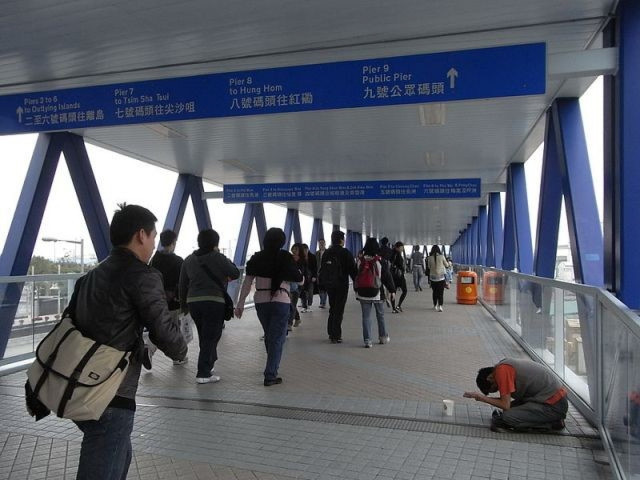Shanghai Police Draws Criticism For Publishing Rank List Of Beggars Caught On Metro Trains

Shanghai police has sparked a controversy for publishing a rank list of beggars most frequently caught begging on the city's metro trains since 2008, with many criticizing the authorities' lack of respect toward the disadvantaged, the Chinese media reported.
The recent release of the list online by the Xujiahui police station of the Shanghai Public Security Bureau urban rail and bus Corps, coincided with the launch of a campaign by Xujiahui police station called, "Say No to Beggars On the Metro," Xinhua reported.
Topping the list is a 22-year-old illiterate man with broken legs from Liaoning province who has been caught 309 times since 2008. An 88-year-old woman from Anhui province is listed second after having been caught begging on the metro 303 times.
The police denied the accusation that they were trying to humiliate the beggars by publicizing a list complete with their surnames, ages and hometowns, the Global Times reported.
Subway beggars have been detained 9,000 times up to Aug. 10, while 411 beggars have been caught over 10 times each, the Shanghai police said.
Lu Feng, spokesperson of the Shanghai Public Security Bureau, said on the Chinese micro-blogging site Sina Weibo that begging on the metro was a lucrative "career."
"The beggars listed are far from poor. They can earn several hundred yuan a day. They even order KFC to be delivered while being held, snubbing their noses at the food that we provide them. Begging is their career," Lu wrote.
The anti-begging campaign on Shanghai's metro trains urges passengers to send an instant text or voice message through Weixin, a popular social networking application on mobile phones, if they spot a beggar on the train between 10 a.m. to 2 p.m. and 6 p.m. to 10 p.m.
Metro commuters can also call a hotline to report beggars. As part of the crackdown on begging, police officers in plainclothes are put on duty whenever begging is likely to be at its peak.
"But the police officers sometimes feel helpless because they cannot do too much about the beggars, as no 'strong-arm tactic' is allowed. We can only educate the beggars," a 28-year-old metro staff member Zhao, who is in charge of maintaining safety at Xujiahui Station was quoted saying by Xinhua.
When caught, the beggars are taken to the metro police station and have their violations put on record and are warned against begging.
In a report published in 2010, China's Nanfang Daily said many beggars in Guangzhou, in South China's Guangdong Province, had enough cash to hire prostitutes and buy drugs.
The report said that "many beggars pretend to be disabled and many of them are under the control and protection of gangsters. The gangsters sometimes kidnap children and force them to beg alone or with a fake mother or father."
In 2003, the Chinese government ordered the setting up of help centers to provide food and accommodation to beggars before sending them back to their hometowns. However, beggars were unwilling to be rehabilitated, media reports said.
Xinhua reported in 2009 that only six people were living in a help center in Shijingshan district in Beijing, which had the capacity to accommodate 100 people.
© Copyright IBTimes 2024. All rights reserved.






















